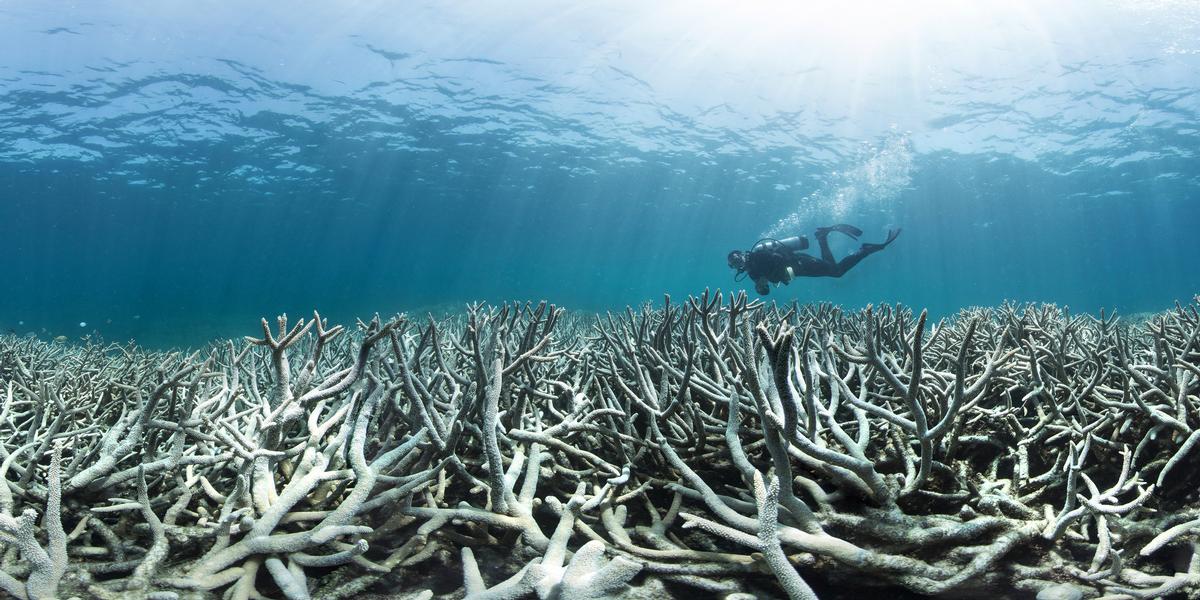see all jobs
Great Barrier Reef bleaching could wash away one million visitors, says report
With warming waters devastating parts of the Great Barrier Reef, the Australia Institute – a Canberra-based think tank – has predicted more than a million less people will visit the natural wonder should Coral bleaching continue.
The process – which turns usually colorful corals white and translucent – occurs when coral becomes stressed by high water temperature, with climate change making it a more and more regular occurrence. The reef, which is a key tourism draw for the northeast of Australia, suffered from mass bleaching in 2016, with around 93 per cent of the coral affected, 22 per cent dying as a result.
The Australia Institute conducted a survey of 3,000 people located in the US, UK and China – the nation’s key tourism markets – and of 1,400 Australians, asking how coral bleaching would affect potential holiday plans.
Using the results to project how the country’s tourism sector could be affected by the bleaching, the institute said that 175,000 potential visitors could be put off visiting Australian altogether, costing an estimated AU$1bn (£777m, €733m, £618m) in annual tourist revenue.
Of those surveyed, more than a quarter of UK respondents said they were less likely to visit because of bleaching, while a third of Americans and 55 per cent of the Chinese market also said they were less likely to visit.
“Along with visitor numbers, the potential loss of tourism revenue represents almost one third of the AU$3.3bn (US$2.5bn, €2.4bn, £2bn) spent by holiday visitors to reef regions each year, which supports between 39,000 and 45,000 jobs,” said the report. “Around 10,000 jobs are at risk from decreased visitation and spending if severe coral bleaching of the reef continues.”
In 2015, the Australian government pledged more than AU$2bn (US$1.5bn, €1.4bn, £1bn) to the reef over the course of 10 years divided over four federal agencies, six state agencies and several major research programmes.
Granted World heritage status by UNESCO in 1981, the reef – which is home to more than 1,500 different species of fish – is “overdeveloped, polluted and damaged by climate change”, according to the heritage body. Over the course of the last 30 years, the heritage site – made up of 600 islands and 3,000 coral reefs – has lost around 50 per cent of its coral.
To read the full report, click here.
More News
- News by sector (all)
- All news
- Fitness
- Personal trainer
- Sport
- Spa
- Swimming
- Hospitality
- Entertainment & Gaming
- Commercial Leisure
- Property
- Architecture
- Design
- Tourism
- Travel
- Attractions
- Theme & Water Parks
- Arts & Culture
- Heritage & Museums
- Parks & Countryside
- Sales & Marketing
- Public Sector
- Training
- People
- Executive
- Apprenticeships
- Suppliers
















































